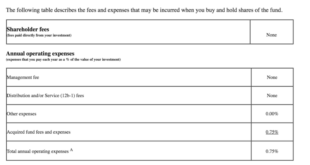Mortgage Broker Licensing: A Guide to Start Your Career. Becoming a mortgage broker is a rewarding career path that requires the right licensing to operate legally and effectively. This guide will help you understand everything about mortgage broker licensing, from its importance to the steps needed to obtain it, including useful tips and frequently asked questions to support your journey.
What Is Mortgage Broker Licensing?
Mortgage broker licensing refers to the process of obtaining legal authorization to act as an intermediary between borrowers and lenders. Licenses ensure that brokers meet the standards set by regulatory bodies, protecting both clients and the financial industry.
Why Is Mortgage Broker Licensing Important?
- Legal Compliance: Operating without a license is illegal and can result in severe penalties.
- Credibility: A license boosts trust among clients and lenders.
- Professional Standards: Licensing ensures brokers adhere to ethical practices and industry regulations.
- Access to Lenders: Many financial institutions only work with licensed brokers.
Steps to Obtain a Mortgage Broker License
- Understand State Requirements
Licensing requirements vary by state. Familiarize yourself with your state’s regulatory agency, typically the Department of Financial Institutions or a similar entity. - Complete Pre-Licensing Education
Most states require 20 hours of pre-licensing education, covering topics like federal law, ethics, and non-traditional mortgage lending. - Pass the SAFE MLO Test
The Secure and Fair Enforcement for Mortgage Licensing (SAFE) Act mandates passing the National Mortgage Licensing System (NMLS) test, including both national and state-specific components. - Submit an Application via NMLS
Create an account with the NMLS to submit your application. Include proof of education, test results, and other required documents. - Background Check and Credit Report
Licensing involves a criminal background check and credit review to assess your financial responsibility. - Pay Licensing Fees
Licensing fees vary but generally include application, fingerprinting, and test fees. - Get Bonded
Some states require a surety bond, which protects clients from financial harm caused by broker misconduct.
Maintaining Your Mortgage Broker License
Once licensed, you must fulfill ongoing requirements to remain compliant:
- Continuing Education: Complete annual training to stay updated on industry changes.
- License Renewal: Renew your license as required by your state, typically annually.
Challenges in Mortgage Broker Licensing
- Meeting Financial Standards: Poor credit history can hinder licensing.
- Complex State Regulations: Different states have unique rules, making compliance tricky for multi-state brokers.
- Passing the Exam: The SAFE MLO test has a significant failure rate without proper preparation.
10 Tips for Successfully Obtaining Your Mortgage Broker License
- Research State Requirements Thoroughly to avoid application errors.
- Invest in Quality Pre-Licensing Education to ensure test readiness.
- Practice Regularly with Sample SAFE Tests to boost confidence.
- Maintain a Clean Financial Record to pass the credit check.
- Prepare Early for License Renewal to avoid expiration.
- Network with Experienced Brokers for guidance.
- Hire a Licensing Consultant if regulations seem overwhelming.
- Keep Your Documents Organized for smoother application submission.
- Stay Updated on Industry Trends to remain compliant.
- Utilize Online Resources and Forums for additional support.
10 FAQs About Mortgage Broker Licensing
- What is the cost of getting a mortgage broker license?
Licensing costs vary but typically range between $1,000 and $2,500, including education, testing, and application fees. - Can I operate in multiple states with one license?
No, you must obtain separate licenses for each state you want to operate in. - What happens if I fail the SAFE MLO test?
You can retake the test, but some states impose a waiting period between attempts. - How long does it take to get licensed?
The process can take 2–6 months, depending on state requirements and how quickly you complete the steps. - Do I need a college degree to become a mortgage broker?
No, but a high school diploma or equivalent is usually required, alongside pre-licensing education. - What is a surety bond, and why do I need it?
A surety bond is a type of insurance protecting clients if a broker acts unethically or illegally. - Is continuing education mandatory?
Yes, most states require annual continuing education to maintain your license. - Can I work for a brokerage firm without a license?
You can work in administrative roles but cannot broker deals or offer mortgage advice. - What’s the difference between a mortgage broker and a loan officer?
A broker is an independent agent connecting borrowers and lenders, while a loan officer typically works for a single lender. - Are there penalties for operating without a license?
Yes, penalties can include fines, legal action, and a permanent ban from the industry.
Conclusion
Obtaining a mortgage broker license is essential for building a successful career in the mortgage industry. While the process may seem complex, understanding the steps, adhering to state regulations, and staying committed to professional growth will help you succeed.
Mortgage brokers play a vital role in connecting borrowers with lenders, and licensing ensures that they operate ethically and professionally. By following this guide and leveraging the provided tips and FAQs, you’ll be well-prepared to navigate the licensing process and embark on a rewarding career.
 mortgage.kbk.news
mortgage.kbk.news
